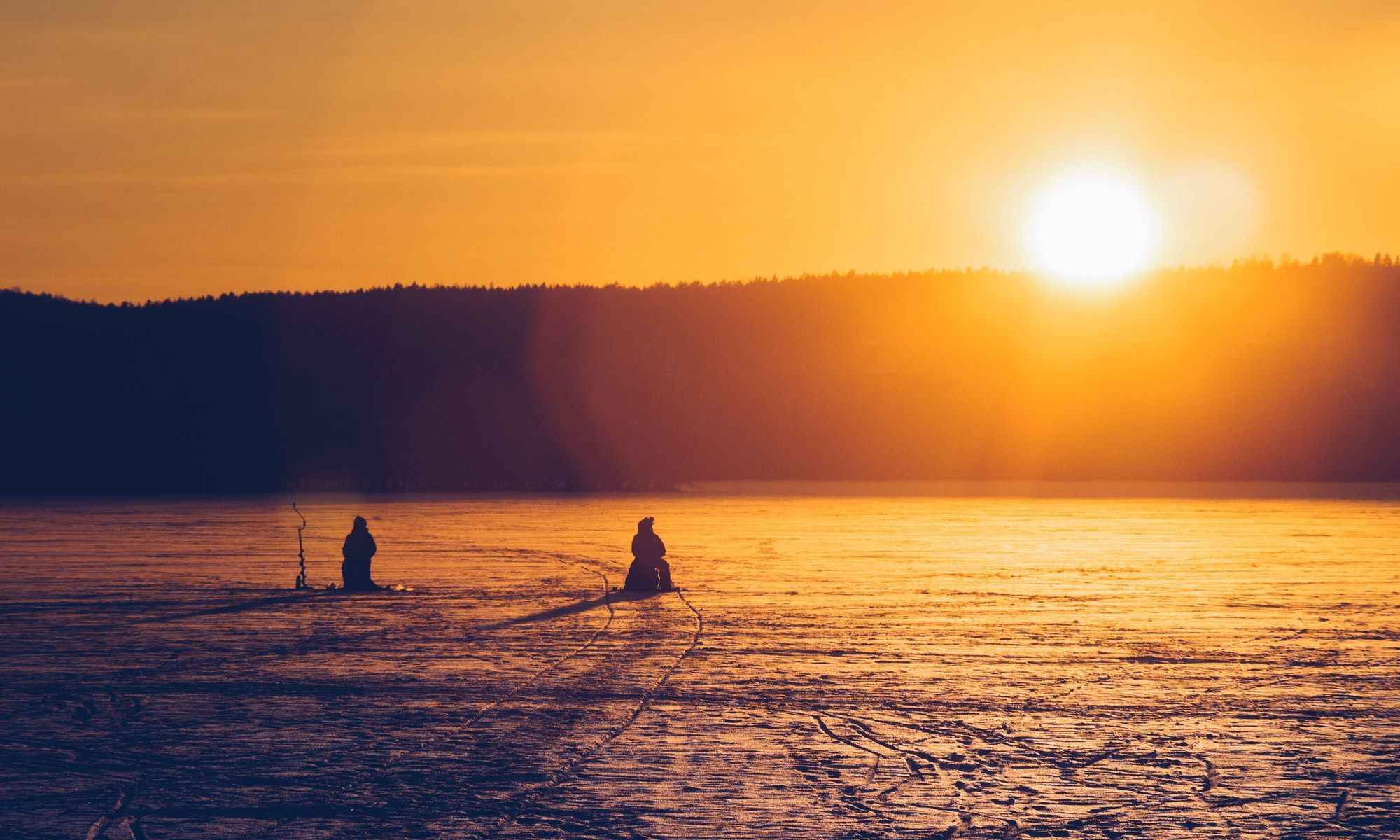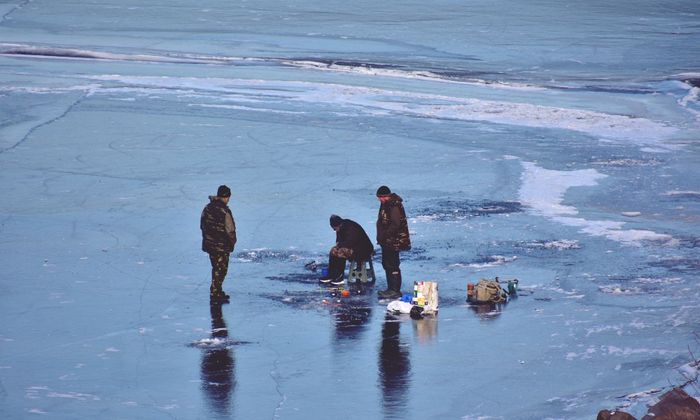Ice Fishing Tips For Anglers
Compared to fishing in other seasons, ice fishing is unlike any other. Here are some tips every angler should know.

For many people, winter is a time for relaxation. Especially for those living further north, many recreational facilities like tennis and basketball courts may be closed. Throughout the year, most anglers will probably look to fish during spring or fall. For spring, many popular game fish like bass are active because of their spawn season. Fall on the other hand is when many fish stock up on food in preparation for the colder months. Winter season also comes with more preparations than the usual fishing trip. Though winter may not be the most preferred season to go on a fishing trip, there are still some benefits to going on a trip. Ice fishing is a unique type of fishing that can only be done during the winter or in places with consistently cold temperatures. In its simplest form, ice fishing is mostly opening a hole in the lake, big enough for a fish to go through, while casting the line and waiting. That’s how it’s always been for many years, however many innovations in the fishing community as a whole have changed the way anglers fish on ice. Where fishermen used to wait and see if fish would bite, today’s anglers are equipped with the latest gear like sonars, rods, and GPS devices, changing how we see fishing during wintertime.
Ice fishing is definitely a popular and unique form of fishing. Almost ¼ of Wisconsin’s annual fishing catch comes from ice fishing. During wintertime, Minnesota’s Mille Lacs Lake caters to over 5000 ice fishing anglers. Because of its popularity there are sure to be many people willing to try the sport. Despite being a form of fishing, there are some differences even veteran anglers, who are new to ice fishing but are otherwise experienced in different seasons, will have to get used to. That’s why down below are some tips, tricks, and everything you need to know about ice fishing.
Go with a Friend
Nature is a factor that separates it from other sports, and wintertime is when it's at its most unpredictable. It goes without saying that even if an angler fishes in a populated area he would still need a companion. If not for keeping safe and responsible for one another, then at least for having a second opinion or a more experienced helper for unexpected situations. Having an experienced friend who can personally teach the ins and outs of ice fishing is many times better than figuring it out by your lonesome.

Keep Warm
Going back to nature’s unpredictability, anglers should always be fully prepared. Many fishing-related accidents occur during this season for a reason. There are many ways to keep warm but simply put, wearing the proper equipment and keeping yourself dry as much as possible is the most basic. Frostbite is no joke. Always be sure to keep you and whoever you’re with, warm.
Invest in the Latest Fish-finders
Gone are the days when fishermen would sit on ice and blindly wait for fish to catch. Modern-day ice fishing has changed drastically with the introduction of fish-finders. It is comparatively more active than how ice fishing used to work. Though fish aren’t as active compared to other seasons, they will still move around. Visibility used to be nonexistent with the ice, but with fish finders, anglers are actively able to search around different areas of activity.
Bring the Right Equipment

Beyond wearing layers of clothing and keeping warm, there are many things to consider when bringing the right equipment for a day of ice fishing. Specific to ice fishing, a spud bar is used to check for the thickness of the ice. Other tools include an auger, a tool that cuts into the ice, as well as a ladle that can scoop out ice. Though not a complete necessity, anglers still recommend having some makeshift shelter, like a shanty or an ice fishing house. Shanties are medium-sized shelters made out of wood or plastic, that usually come in 6 x 6 feet sizes. They’re tall enough to stand in and can be rented in sporting goods or recreational stores.
When on a budget, even a small tent will do wonders. Tents specifically made for ice fishing are made out of canvas and are usually made out of an aluminum frame. They will be enough to keep you and at least one other person away from the cold.
Be Patient and Vigilant
Like any fishing trip, anglers aren’t guaranteed a bite. This is especially the case where the temperatures are at their coldest. Though fish have eaten enough to last through winter; conversely, they expend less energy and are not as active. Because of fish finders and other sonar devices being readily available, tracking fish has never been easier. However, tracking and ice fishing as a whole has become more active. Time on frozen lakes or rivers will most likely be traversing its different areas trying to find where fish are at. In situations like these it is good to be patient. Rushing things can lead to mistakes and worse, accidents. It is important to remember that water does not freeze evenly all over lakes and rivers. There will be sections where ice is thinner, and it’s best to traverse carefully. The worst thing that can happen is falling through and into the water. Hypothermia and frostbite can potentially occur, getting out can be really hard with all the layers of clothing and equipment on hand.
Know When to Take a Rain Check
The weather won’t always be agreeable, and many problems can arise like dangerously strong winds or enough snowfall to fill roads. An angler that knows when to quit, will be safe in the long run. It definitely is hard to pack up and leave a trip that’s been prepared for, weeks and even months prior, but safety obviously comes first. No matter how many fish an angler thinks he can still get, or even If he just started the day, being able to make a sound judgement depending on the situation is a trait every angler should have.

Safety First
Ice fishing is completely different from the type of fishing most of us are used to. It’s good to approach it with more patience and open mindedness as there are a lot of things to get used to. Though it’s not to say veteran ice fishers are allowed to be rash. In fact, the US Coast Guard has reportedly found that the most fishing-related accidents are during winter. The cold can be unforgiving, but those who are prepared will have a unique experience unlike fishing during any other time of the year.




